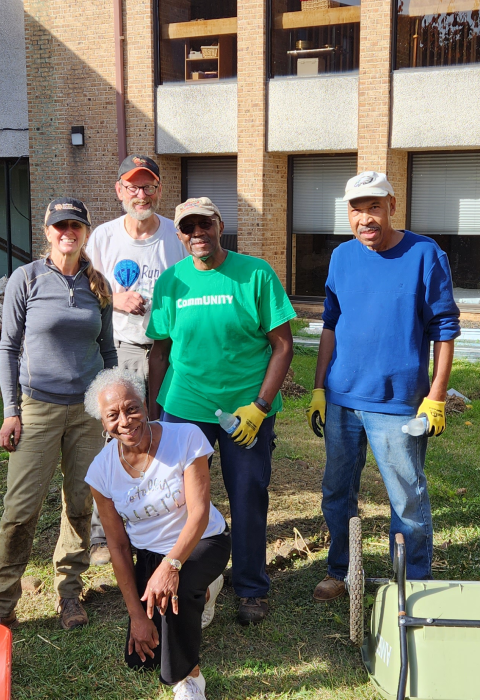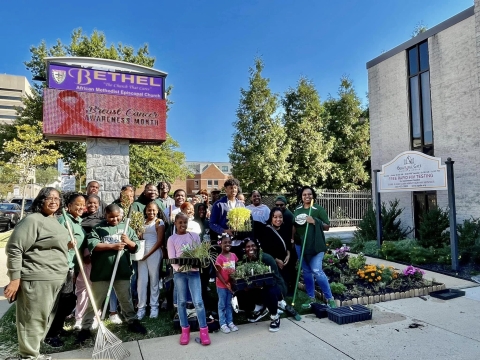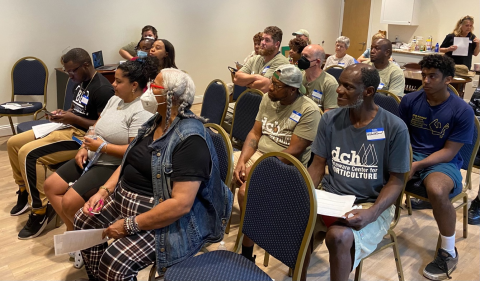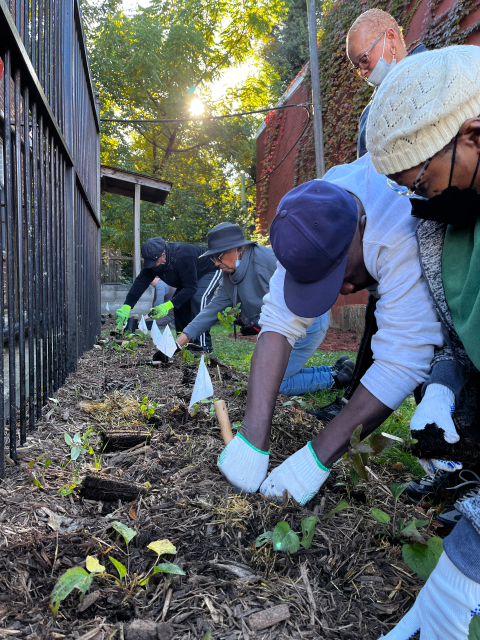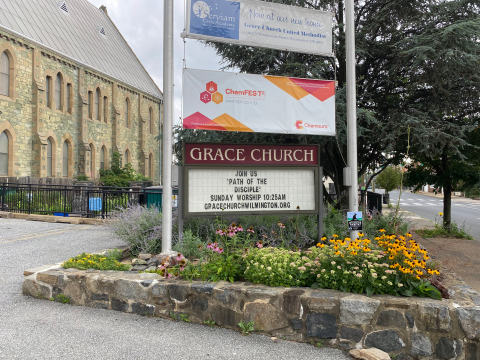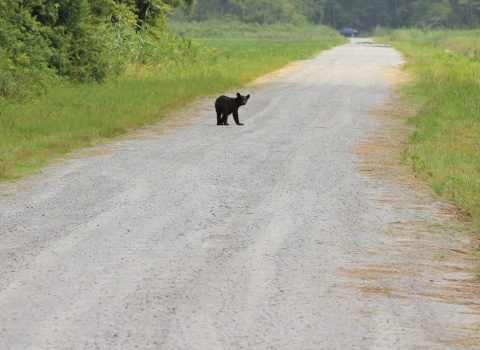On a cool, fall Delaware morning, glints of light stipple the bronze leaves at the base of the Bethel AME Church. Congregants gather at its steps to raise their voices, kneel beside each other, join hands, and help their community by helping pollinators.
The morning chill will succumb to 90-degree heat generated by the sun reflecting off the thirsty pavement surrounding them. Yet, there is one patch, one small green patch of earth, reminding them that this place was different once. The planet was different once.
Wilmington, Delaware, has experienced climate change climate change
Climate change includes both global warming driven by human-induced emissions of greenhouse gases and the resulting large-scale shifts in weather patterns. Though there have been previous periods of climatic change, since the mid-20th century humans have had an unprecedented impact on Earth's climate system and caused change on a global scale.
Learn more about climate change through severe heat waves and extreme flooding events, in some cases after only modest rainstorms. Urbanization and expanses of pavement seem to have left little room for nature beyond the rivers. Or have they?
Thanks to a partnership led by the National Wildlife Federation and supported by the U.S. Fish and Wildlife Service’s Delaware Watershed Conservation Fund, 21 faith-based organizations now have pollinator gardens, a peppering of green across the city welcoming people and wildlife.
It takes a congregation
Many Wilmington neighborhoods experience significant environmental justice concerns, from lack of shade trees and accessible green space to devastating floods. The Delaware Watershed Conservation Fund supports grants for projects that restore fish and wildlife habitats, reduce flooding and runoff, improve water quality, and enhance safe recreational access in the Delaware watershed. What's more, nature-based solutions supported by the Fund have shown significant cross-cutting benefits for under-resourced communities.
The National Wildlife Federation’s Sacred Ground program was ready to bring green spaces and wildlife habitat to the communities that needed them most. With help from area partners, faith-based communities received virtual and on-site workshops, technical support and resources to create pollinator gardens on their land. Once complete, the spaces that offer food, water and habitat for wildlife — including native plants for pollinators — gain a Sacred Ground certification.
The Sacred Grounds program builds community awareness about native plant options, wildlife benefits, and ways to support the bigger environmental picture.
“Very suburban lawns can still support a high richness of pollinators,” said Clare Maffei, U.S. Fish and Wildlife Service pollinator conservation coordinator. “A native bee can travel about the length of a football field. With urbanization, habitats have become fragmented, but by putting together a strip of gardens at churches, it can inspire others to plant their back yard too, bridging the gap.”
Together, they began turning back time by planting seeds of climate resilience, one pollinator garden at a time.
Seeds of sanctuary
A 15-minute walk from the Bethel Church is another small pocket of grass nestled beside the faith-based Dickerson Education Center. A periodic dumping ground, the parcel begged for transformation. Guided by community leaders, the neighborhood sought help to create a garden.
The Sacred Grounds partnership was there.
Together, they gloved up and began cleaning the litter and sowing new seeds of sanctuary. At the end of the planting, bearing soiled knees and tired backs, they left with pride that they had built a beautiful space. Their space.
For the project partners, working with faith groups is intentional. Their established structures bring foundations of unity and care for fellow beings. Often there is a through line between their faith and a call to care for the earth,” said Lindsey Walker, manager of education and conservation for the National Wildlife Federation. “We have such a responsibility to support community members doing this kind of work, and there are so many ways environmental work connects with other goals and needs of community members.”
Regardless of what calls them together that day, the congregants are finding value. Some may be climate crusaders, while others simply enjoy the opening of a new flower and a visit from a bird.
“Everybody loves a butterfly,” Maffei said. “Pollinator gardens are wonderful gateways to looking at nature more closely.”
Twenty-one Wilmington gardens later, the community has transformed into a mosaic of Sacred Grounds. With tree stumps for seating and seasonal decorations, the Education Center’s garden continues to beckon the community back into this space.
Perhaps not everyone will be pollinator experts by the end of the planting, and truly, that’s not the goal. Everybody comes with unique and valuable connections to nature and through this program, they will leave with more. “Every time we plant a garden, someone comes to me and tells me about a connection they have from childhood to the natural world,” Walker said, “You can see them connecting with that again and it’s such a positive moment.”
And so, they plant.
Faith in nature
Climate change is a global issue, but great cathedrals are built one brick at a time. The Fund is supporting nature-based solutions big and small, cultivating ecosystem health, climate change remedies and environmental justice.
“Pollinator gardens may not solve the greater climate crisis or flooding issues,” Walker said. “But small habitat patches can have a big impact for pollinators, and they give people some agency over climate challenges that feel impossible to solve.”
Environmental Justice is about ensuring everyone has equitable access to a healthy, sustainable, and resilient environment in which to live, play, work, learn, grow, worship, and engage in cultural and subsistence practices.
Since 2021, the Delaware Watershed Conservation Fund provided guidance to all grant applicants on meaningful community engagement to address racial and economic disparities in access to nature and conservation outcomes. In 2023, 72% of projects directly engaged communities with environmental justice concerns, and 89% impacted these communities positively.
“Life deserves to live,” Maffei said. “We are public servants and if we are only investing large infrastructure where nobody is living, we aren’t serving our public. Green spaces pull toxins from the soil and reduce heat. It is our responsibility to invest in urban green spaces because they literally save lives.”
A year since the planting, on that one small patch of green earth, a new community member arrived. A monarch caterpillar made its home — in the form of a gilded green chrysalis — in the small pocket of flowers, nestled beside the faith-based Dickerson Education Center.
